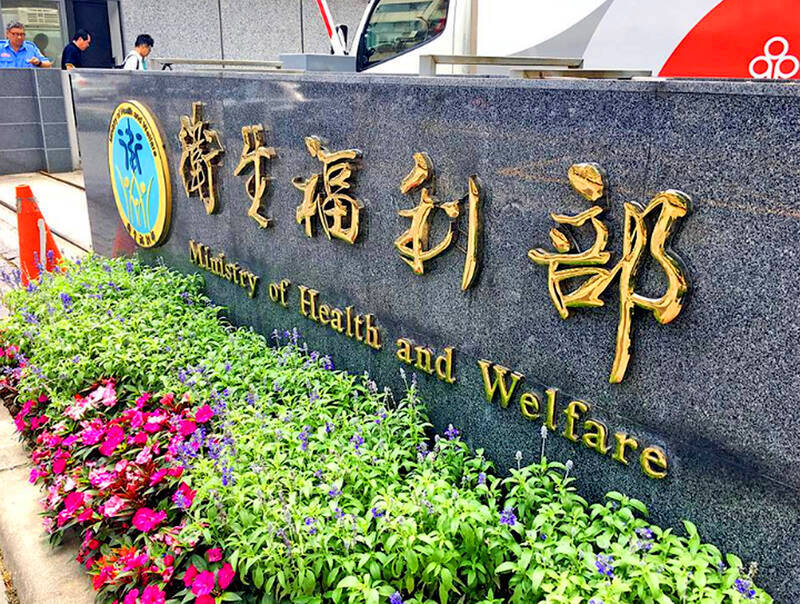The Ministry of Health and Welfare’s (MOHW) amendments to the Regulations on Application and Payouts for Long-term Care Services (長期照顧服務申請及給付辦法) introduce sweeping changes and are expected to benefit about 730,000 people with increased services, an official said yesterday.
While statistics show that long-term healthcare users numbered 560,000 last year, the government estimates the total population of those with disabilities stands at 720,000, Department of Long-Term Care Deputy Director-General Wu Hsi-wen (吳希文) said.
With about 6,000 people with early-onset dementia and post-acute care (PAC) being eligible for long-term healthcare services starting next year, Wu said total beneficiaries stand at about 730,000.

Photo: Lin Hui-chin, Taipei Times
Starting after Lunar New Year next year, people with early-onset dementia and PAC would also be eligible for long-term healthcare services, she said.
By September, families hiring foreign caregivers would also have access to community care services in addition to the current services, equipment, transportation and respite care, the ministry said.
The ministry said that 200,000 families hire the services of foreign carers, in addition to utilizing services already provided by long-term healthcare policies.
Communal transportation and pickup services, designated BD03 under the policy, would offer services to communal day care facilities for physically and mentally challenged people, and foster care homes and other social welfare facilities starting in September, the amendment said.
Payouts for the trips would be increased to NT$115 per trip, up from NT$100, for standard areas, and to NT$138 per trip, up from NT$120, for indigenous townships or outlying islands, the amendment said.
Changes to nutritional care service payouts for long-term care patients with a need for nutritional balance would take effect in September, with a set of three nutritional services costing NT$4,500, up from four times for NT$4,000, the amendment said.
Adjustments to respite care would also take effect in September, allowing care providers to not only assist patients in their own homes, but also to accompany them to exercise or take walks in backyards, communal plazas or nearby parks, the ministry said.
From July next year, the ministry is to introduce “smart” equipment, Wu said, pointing to mattresses that could assist patients with turning over, mobility-assistance equipment that could detect obstacles and equipment to help monitor urine levels.
The ministry said it recognizes that the pricing for such equipment might be relatively high and has included it under subsidy payouts, increasing to NT$60,000 from NT$40,000 over a three-year period.

Aftershocks from a magnitude 6.2 earthquake that struck off Yilan County at 3:45pm yesterday could reach a magnitude of 5 to 5.5, the Central Weather Administration (CWA) said. Seismological Center technical officer Chiu Chun-ta (邱俊達) told a news conference that the epicenter of the temblor was more than 100km from Taiwan. Although predicted to measure between magnitude 5 and 5.5, the aftershocks would reach an intensity of 1 on Taiwan’s 7-tier scale, which gauges the actual effect of an earthquake, he said. The earthquake lasted longer in Taipei because the city is in a basin, he said. The quake’s epicenter was about 128.9km east-southeast

The Taipei Summer Festival is to begin tomorrow at Dadaocheng Wharf (大稻埕), featuring four themed firework shows and five live music performances throughout the month, the Taipei Department of Information and Tourism said today. The festival in the city’s Datong District (大同) is to run until Aug. 30, holding firework displays on Wednesdays and the final Saturday of the event. The first show is scheduled for tomorrow, followed by Aug. 13, 20 and 30. To celebrate the 30th anniversary of Disney Pixar's movie Toy Story, the festival has partnered with Walt Disney Co (Taiwan) to host a special themed area on

BE CAREFUL: The virus rarely causes severe illness or death, but newborns, older people and those with medical conditions are at risk of more severe illness As more than 7,000 cases of chikungunya fever have been reported in China’s Guangdong Province this year, including 2,892 new cases last week, the Centers for Disease Control (CDC) yesterday said it is monitoring the situation and considering raising the travel notice level, which might be announced today. The CDC issued a level 1 travel notice, or “watch,” for Guangdong Province on July 22, citing an outbreak in Foshan, a manufacturing hub in the south of the province, that was reported early last month. Between July 27 and Saturday, the province reported 2,892 new cases of chikungunya, reaching a total of 7,716

The New Taipei City Government today warned about the often-overlooked dangers of playing in water, and recommended safe swimming destinations to cool off from the summer heat. The following locations in the city as safe and fun for those looking to enjoy the water: Chienshuiwan (淺水灣), Baishawan (白沙灣), Jhongjiao Bay (中角灣), Fulong Beach Resort (福隆海水浴場) and Sansia District’s (三峽) Dabao River (大豹溪), New Taipei City Tourism and Travel Department Director-General Yang Tsung-min (楊宗珉) said. Outdoor bodies of water have variables outside of human control, such as changing currents, differing elevations and environmental hazards, all of which can lead to accidents, Yang said. Sudden